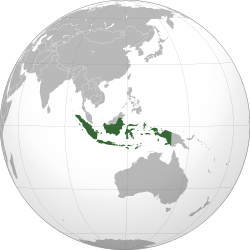Indonesia: Loopholes In The Law
Laws are meant to protect the weakest and the most vulnerable. But what happens when ill-defined discriminatory laws fail to recognize the needs of some of these very individuals, or selectively overlook their rights? Inna Hudaya, the founder of Samsara (Indonesia) writes about such laws and how they exploit vulnerable women instead of protecting them.
The law of any country is supposed to protect every woman of that country, and ensure that every woman, like any other citizen, irrespective of her background and situation, is protected from all forms of harm, violence, discrimination, and even death.
Laws that do the opposite and have loopholes that can be used to take advantage of vulnerable women are bad laws Such laws permit the violation of rights, allow discrimination, and repress those who are not recognized by it.
The Indonesia Health Bill of 2009, Article 75 states that abortion is illegal except to save the life of a woman, including cases when the pregnancy endangers the mother or fetus, or when the pregnancy is the result of rape. Anyone who had an induced abortion for reasons other than these will be subjected to a penalty: 10 years imprisonment, or a fine of 1 billion IDR (105,374 USD).
 Article 76 has an additional clause: Abortions can be done before the 6th week of pregnancy; women seeking abortion should go through the process of counseling; the procedure should be carried out by a medical practitioner, who is a certified and authorized. It also states that women need the permission of a parent or a spouse to get the abortion.
Article 76 has an additional clause: Abortions can be done before the 6th week of pregnancy; women seeking abortion should go through the process of counseling; the procedure should be carried out by a medical practitioner, who is a certified and authorized. It also states that women need the permission of a parent or a spouse to get the abortion.
This clause , while appearing to be expanding access to safe abortions , actually overlook the interests of several women. But more importantly, even in its efforts to protect women, the Bill fails to see women as empowered individuals. For example, ‘saving a woman’s life’ should not only include protecting women from complications and maternal death, but also protecting the quality of her life. By excluding the latter, the Health Bill protects only some women, and is unable to accommodate other women who also need safe abortion services.
Also, article 72 of the Health Bill explicitly recognizes and regulates reproductive rights, including the right of a woman to decide when and how often to reproduce. Considering abortion is integrated into the Health Bill, it cannot separate health care issues and family planning, and therefore this rights-based approach should be integrated into the law on abortion as well. Instead article 75 which regulates abortion contradicts article 72 on reproductive rights, by denying women the right to safe abortions in case of contraceptive failure. Family planning programs become incomplete when this option is denied to women.
Inna Hudaya is the founder and director of Samsara, and the author and owner of www.askinna.com. She works as a senior counsellor at Samsara, and provides pre- and post-abortion counseling, and promotes access to information on safe abortions.
Samsara promotes sexuality education by providing access to accurate information on reproductive health and choices. Samsara has a safe abortion hotline, and provides a platform for young women and men to discuss sex, sexuality, abortion and other reproductive health issues in an amoral environment.






